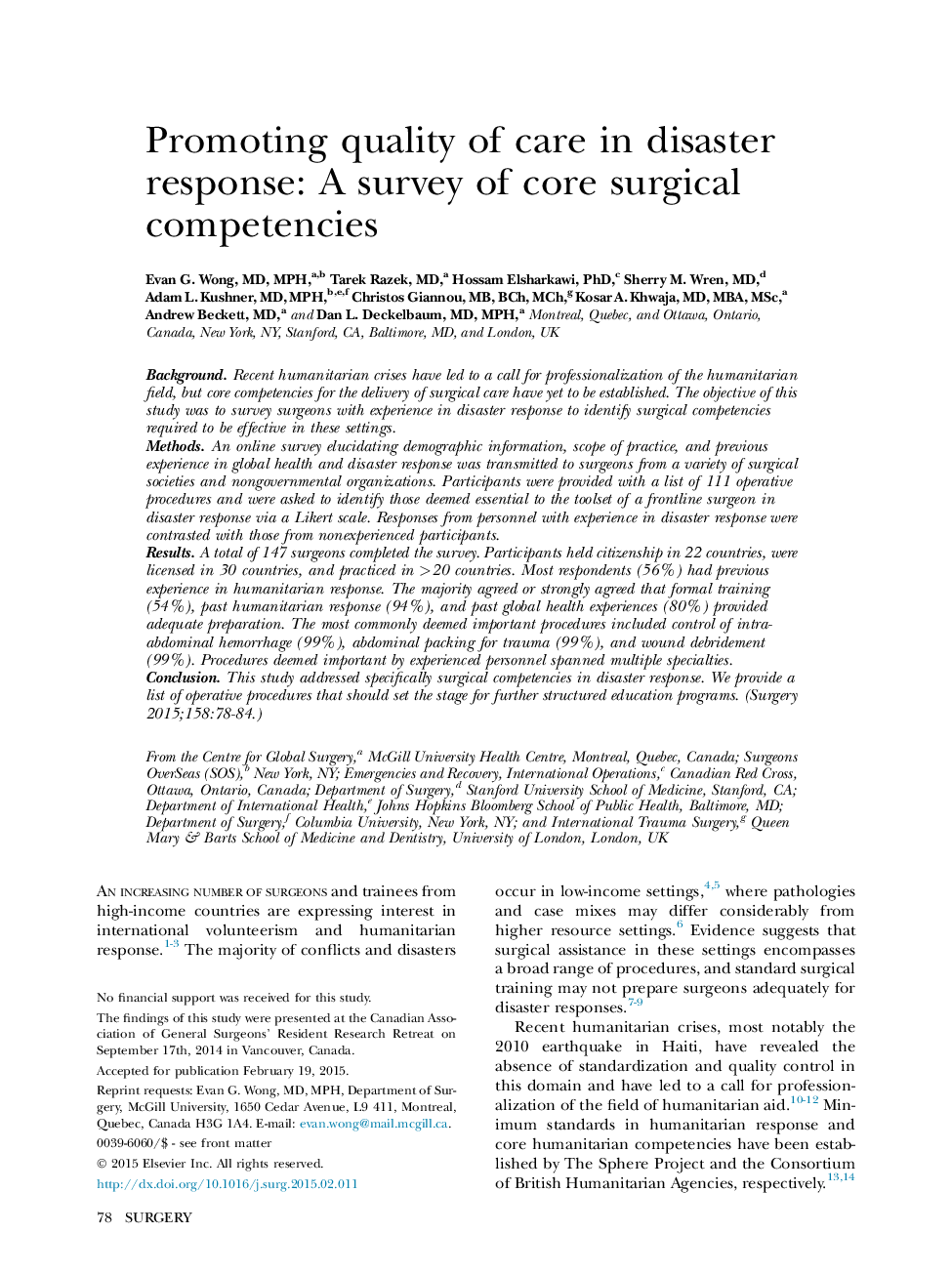| Article ID | Journal | Published Year | Pages | File Type |
|---|---|---|---|---|
| 6255296 | Surgery | 2015 | 7 Pages |
BackgroundRecent humanitarian crises have led to a call for professionalization of the humanitarian field, but core competencies for the delivery of surgical care have yet to be established. The objective of this study was to survey surgeons with experience in disaster response to identify surgical competencies required to be effective in these settings.MethodsAn online survey elucidating demographic information, scope of practice, and previous experience in global health and disaster response was transmitted to surgeons from a variety of surgical societies and nongovernmental organizations. Participants were provided with a list of 111 operative procedures and were asked to identify those deemed essential to the toolset of a frontline surgeon in disaster response via a Likert scale. Responses from personnel with experience in disaster response were contrasted with those from nonexperienced participants.ResultsA total of 147 surgeons completed the survey. Participants held citizenship in 22 countries, were licensed in 30 countries, and practiced in >20 countries. Most respondents (56%) had previous experience in humanitarian response. The majority agreed or strongly agreed that formal training (54%), past humanitarian response (94%), and past global health experiences (80%) provided adequate preparation. The most commonly deemed important procedures included control of intraabdominal hemorrhage (99%), abdominal packing for trauma (99%), and wound debridement (99%). Procedures deemed important by experienced personnel spanned multiple specialties.ConclusionThis study addressed specifically surgical competencies in disaster response. We provide a list of operative procedures that should set the stage for further structured education programs.
